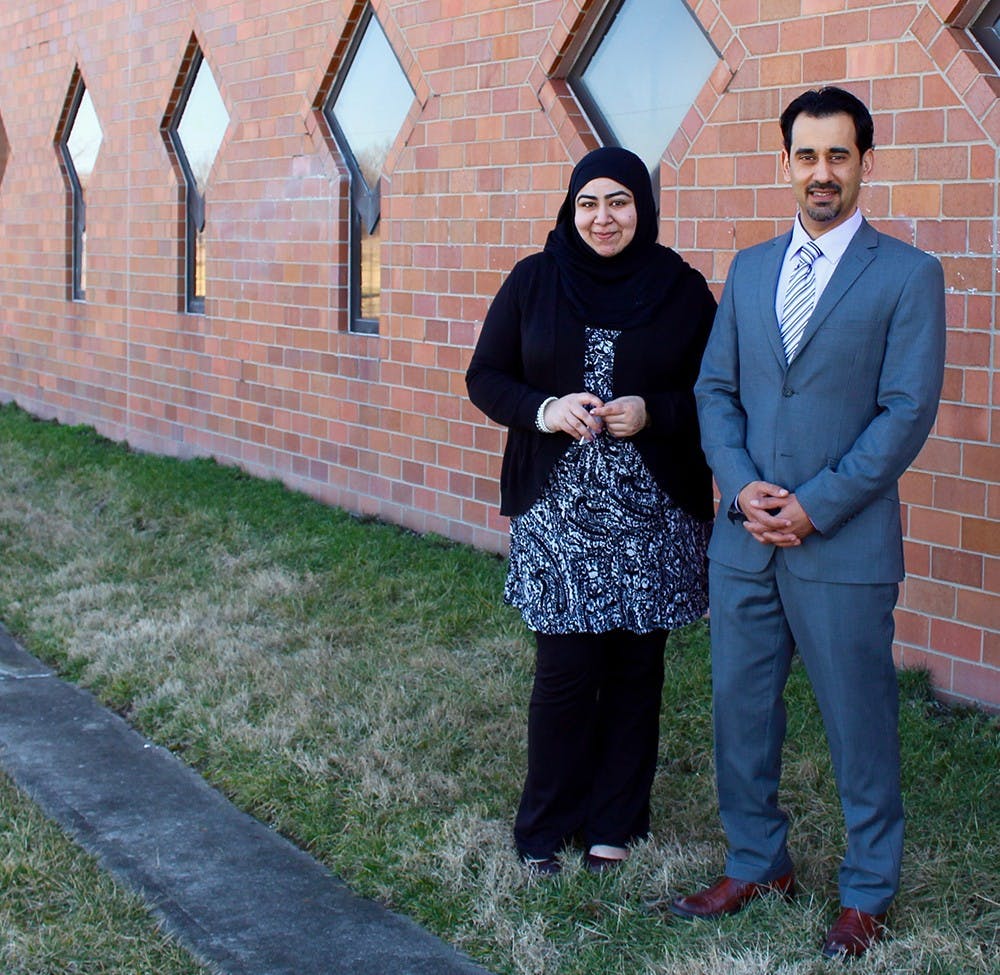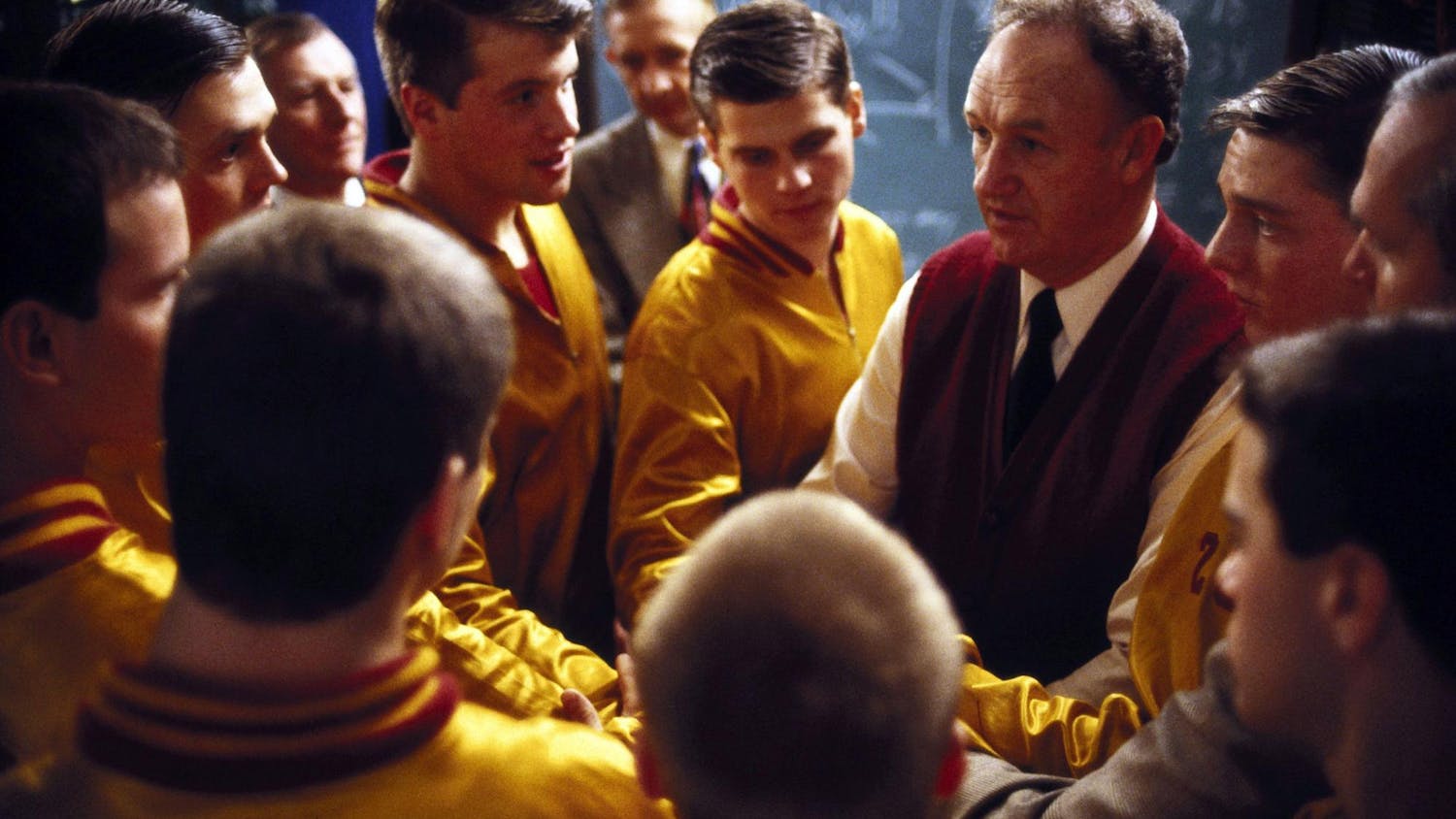The three young men came early Sunday morning. They sprayed “Fuck Muslims,” “Fuck ISIS,” “suicid bombers” and genitalia in white paint on the red brick walls of the Islamic Society of North America in Plainfield, Indiana.
The message was disturbing and frightening, ISNA Secretary General Hazem Bata said. Even so, his main message to the vandals was “thank you.”
At a press conference Monday morning, Bata said he was grateful to the men, who had inadvertently reminded his community that every negative comes with a positive.
“I want to thank the vandals for highlighting the fact that the bonds between Muslims and their fellow Americans and the bonds between Muslims and their brothers and sisters in other faiths are stronger than the bond between spray paint and brick,” he said.
In the last day, those bonds have manifested themselves in social media posts, phone calls and letters from across the country.
People sent support from as far away as California and from as close as the society’s neighborhood in Plainfield, which is west of Indianapolis.
Before the sun set on the weekend, a local volunteer had scrubbed every dot of paint away.
The support was not only from fellow Muslims, though ISNA is the largest Islamic organization in the country.
Most of the attendees of the crowded press conference were actually Christians.
A rabbi, a United Methodist pastor and the executive director of the Indianapolis Jewish Community Relations Council, Lindsey Mintz, had also come to speak and show support.
Mintz said it’s especially important for minorities to stand together in times of persecution and to work toward an America free from discrimination.
“When our children are young we can help prevent the development of prejudice from taking root by seeking out books and programs and teachers that promote respect for diversity, address bias and encourage social action,” she said.
Lindze Southwick agreed that early exposure to diversity is important.
For that reason, she had arrived at the press conference with her 4-year-old daughter, Bay Edwards, in tow.
“Why are we here?” Southwick asked her daughter.
Standing in sparkly rainbow sneakers and clutching a stuffed dinosaur almost as tall as her, Bay sighed and a crease appeared above her small, scrunched nose.
“Mean kids sprayed paint on the wall,” she said with a shrug.
As a Quaker, Southwick said she believes in the connectivity between everyone.
“I want her to experience other cultures,” Southwick said. “She needs to see differences and be surrounded by them.”
When asked what a Muslim was, Bay hesitated.
“They’re people that are kind of old?” she guessed.
Southwick pointed to a young woman in a hijab.
“But that woman’s a Muslim and she’s not old,” she explained.
Bay looked carefully.
“They wear the thing on their head,” she said.
It’s moments like these, these points of connectivity, that Bata said are the most important in fighting hate.
“Our main goal is to educate people,” he said, noting he was unsure as of yet whether ISNA will press charges if the men are ever caught.
“This act was not necessarily the result of hatred, but a result of fear in the face of ignorance.”
He said most Americans have never met a Muslim, but of the Americans who have, almost all of them have a favorable view of Muslims.
“When people meet me ,they get to see that I’m extraordinarily charming,” he joked. “I get that from my dad.”
He also said, like many Americans, he’s struggling to find the money to send his kids to college, he tries hard to make sure his wife isn’t mad at him and he hates sitting in traffic.
He was able to relate these personal facts while surrounded by microphones, cameras, notepads and new acquaintances, many of whom would never have visited the mosque if it weren’t for the vandalism.
He invited the vandals to come in the door next time instead of painting around it. He told them they could share stories, eat kebabs and learn about each others’ faiths.
Again, he told them, “Thank you.”
***
The vandalization of the Islamic Society of North America came just four days after two Muslim men were shot “execution-style” in Fort Wayne, Indiana, and 10 days after a Chinese exchange student was stabbed in the back with a hatchet by a white supremacist in Nashville, Indiana.
Though the murders have not been confirmed as hate crimes, they, along with the other two incidents, have helped spark the dialogue surrounding the lack of hate crime legislation in Indiana.
“Adding and enforcing a law that would address crimes based on prejudice would help align our laws with our American values,” Mintz said.
Indiana is one of only five states without hate crime laws and Indiana lawmakers announced this week it will likely stay that way for another year.
Senate Bill 220, authored by Sen. Susan Glick, R-LaGrange, would have made bias crimes an aggravating circumstance in sentencing.
It is expected to die in the House due to a lack of time for a committee hearing this session.
Though some argue that all crimes should be treated equally under the law, proponents of hate crime legislation say that this type of crime is more damaging than others.
“That kind of act sends a signal to every Muslim in Indianapolis that you are not wanted, that you are not safe,” Bata said.
“That’s what makes hate crimes so dangerous. It’s not a crime against an individual — it’s a crime against an entire community.”






